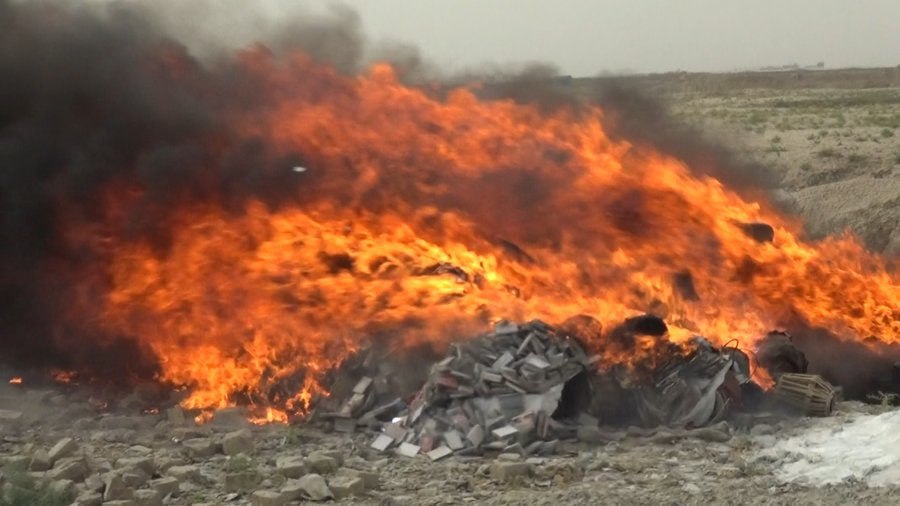The act of burning musical instruments by the Taliban-controlled Ministry of Prosperity and Prohibition in Afghanistan on July 19, raises serious concerns about the extent of restrictions on cultural expression under their administration.
The Taliban-controlled Ministry of Prosperity and Prohibition made a public announcement on Wednesday, July 19, stating that they viewed the collected musical instruments as tools promoting "music and corruption." Over the past few months, the ministry had been gathering these items, which they then symbolically destroyed by burning them. The Taliban justified this action by aligning it with the principles of Sharia law. This move clearly reflects the group's strong stance against cultural expression, particularly music, as they solidify their control over different aspects of Afghan society.

Such actions have serious implications for the country's artistic community, leading many artists to flee in search of environments that allow them to freely express themselves and pursue their creative endeavours. This exodus of artistic talent can have long-lasting consequences for Afghanistan's cultural vibrancy and heritage.
On June 11, the Taliban's Ministry of Enjoining Good and Forbidding Evil issued a statement announcing their decision to ban music during wedding ceremonies, as reported by a Daryo correspondent in Afghanistan.
The Taliban's approach to governance and their restrictive measures are drawing international attention and raising concerns about the protection of human rights, particularly the right to freedom of expression and cultural identity.
Follow Daryo's official Instagram and Threads pages to keep up to date on world news.
Comments (0)